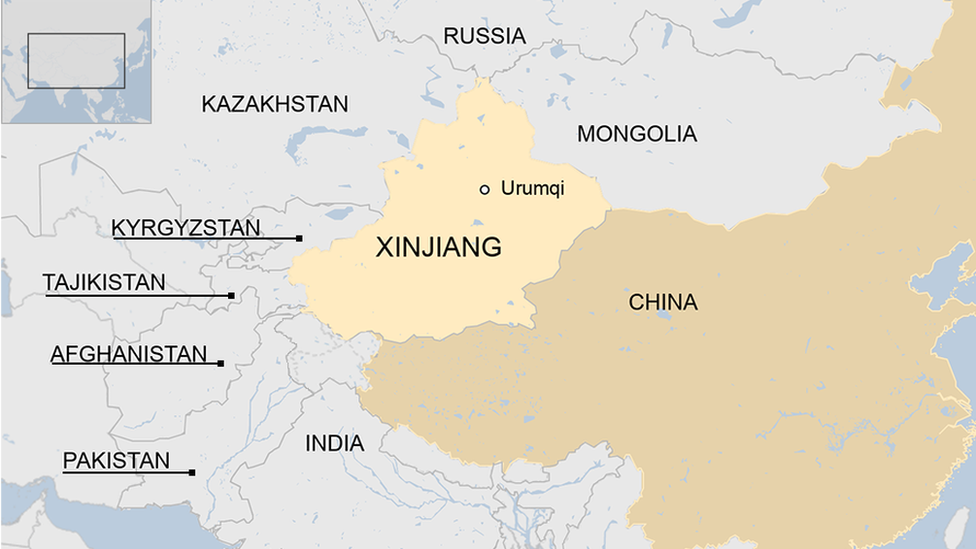Chinese tourists warned over Turkey Uighur protests
- Published
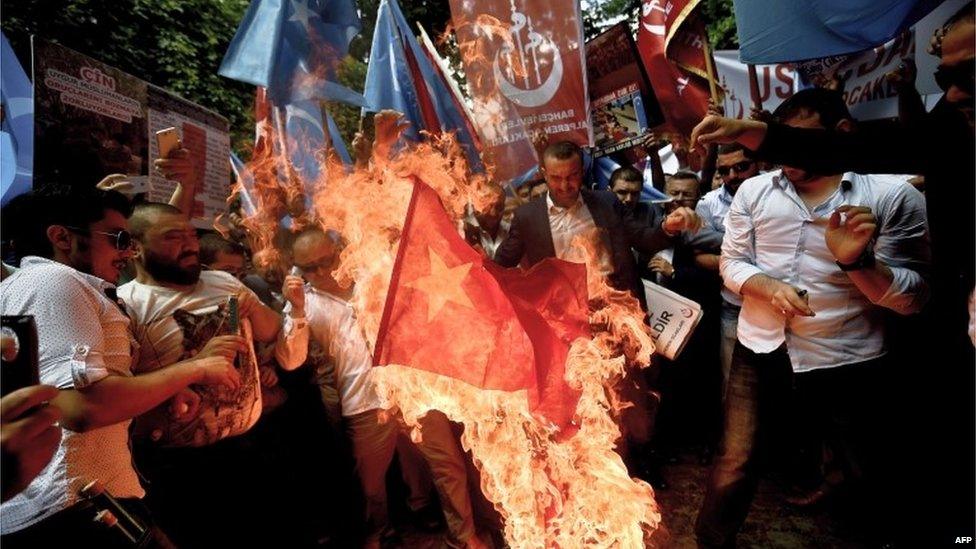
A Chinese flag was burned in a protest in Istanbul over the Chinese treatment of Uighurs
China has issued travel advice to its citizens travelling to Turkey after it said several tourists were attacked in protests over the Chinese government's treatment of ethnic Uighur Muslims.
Over the weekend, hundreds of protesters gathered outside the Chinese consulate in Istanbul.
Tourists have been warned, external to avoid filming protests or going out alone.
China said it has always attached great importance to and fully respects the freedom of Muslim religious beliefs.
A statement, external from the government said accusations in the Western media that religious rites had been banned in western China's Xinjiang province this Ramadan were "completely at odds with the facts".
Turkish Muslims and Chinese Uighurs share ethnicity and have close cultural and religious ties.
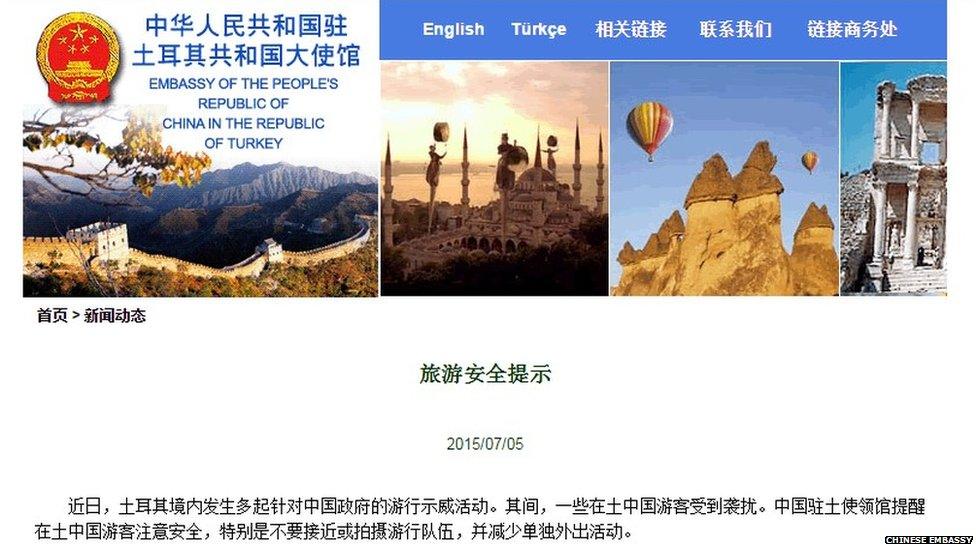
The Chinese government issued safety advice, saying accusations in the Western media were at odds with the facts
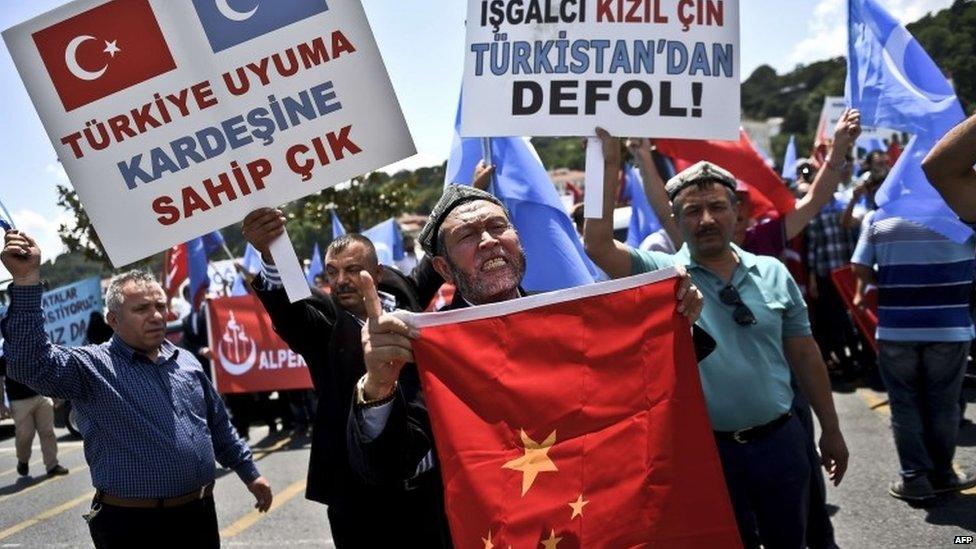
There has been a crackdown in Xinjiang on what China describes as 'terrorism driven by religious extremism'
Ankara summoned the Chinese ambassador last week over reports that Beijing had banned Uighurs from fasting and worship during the holy month.
Hundreds have died in violent attacks in Xinjiang in recent years. China blames the violence on Islamist terrorist groups but Uighur groups say the unrest is being fuelled by Beijing's repressive policies.
On Sunday, protesters at the Chinese consulate were pictured burning the Chinese flag and holding banners, one of which said "Turkey save your Brother - China get out from East Turkestan".
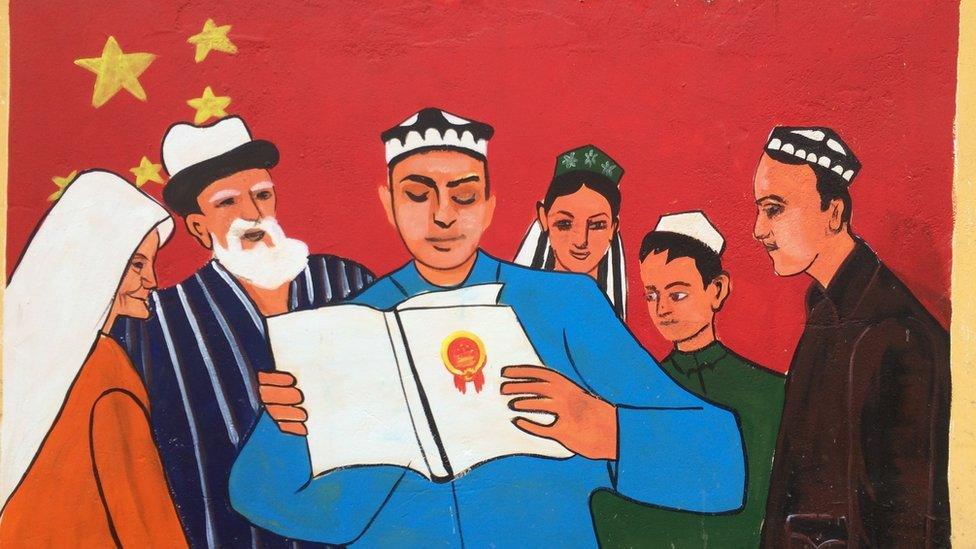
A propaganda mural in Kashgar, Xinjiang, shows Uighurs reading a Chinese book
China crushed the short-lived state of East Turkestan in 1949. It established the Xinjiang Uyghur Autonomous Region in 1955.
The Chinese foreign ministry said there had recently been "multiple" demonstrations in Turkey targeting the Chinese government and "several" Chinese tourists had been attacked.
Turkish media reported, external a group of Korean tourists believed to be Chinese were attacked and tear gas was used by police to disperse protesters.
The last year has seen a crackdown in Xinjiang on what China describes as "terrorism driven by religious extremism".
In some places, the government has banned Uighurs from buying knives and women from wearing veils.
Security check points have been set up on roads and near markets and shopping malls.
In previous years, students have told the BBC they have been prohibited from taking part in Ramadan fasts, and government departments have restricted civil servants.
On microblog Weibo, one Chinese user, Dan Duo Duo 35, said: "Our policies towards ethnic minorities are still not good enough? They have less strict requirement for university exams, special prayer rooms in airports, and food labelled with Halal.
"The Han people are the disadvantaged one."
- Published17 June 2015
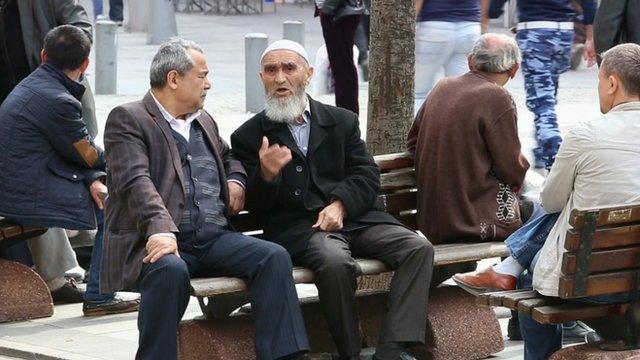
- Published12 January 2015
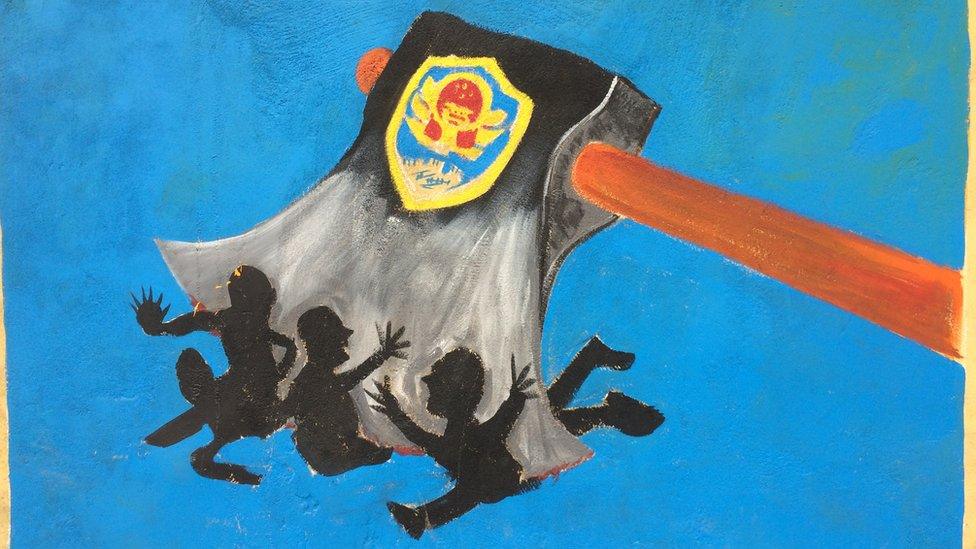
- Published2 January 2015
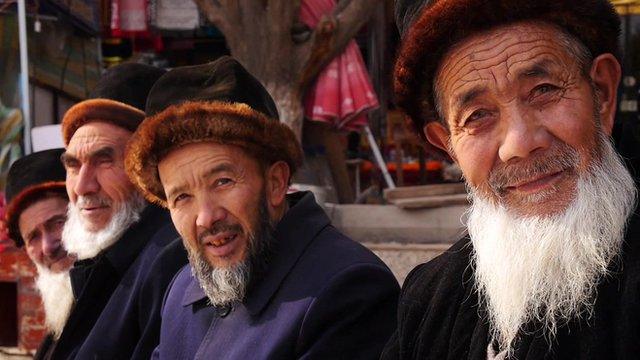
- Published2 July 2014
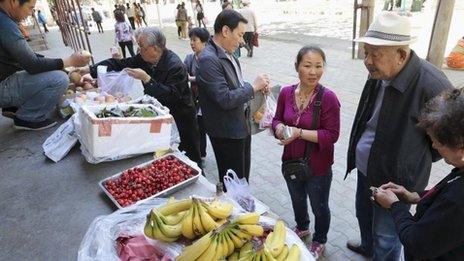
- Published25 August 2023
